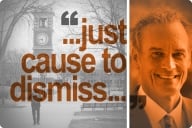You have /5 articles left.
Sign up for a free account or log in.
Colleges have shown a wide-ranging level of interest and success in stopping illegal file sharing on their campuses, a panel of higher education experts and entertainment industry executives told a U.S. House of Representatives subcommittee on Tuesday.
Some institutions have clear policies on what constitutes piracy and what the penalties are for students, but some don't. Some college presidents are receptive to the entertainment industry’s call for preventive action, and some aren't. That was the picture painted by panelists during the hearing, “The Internet and the College Campus: How the Entertainment Industry and Higher Education are Working to Combat Illegal Piracy,” held by the Committee on Education and the Workforce Subcommittee on 21st Century Competitiveness amid continuing concern that file sharing is costing the music and film industries lots of revenue -- and causing myriad network security problems at some colleges.
Dan Glickman, chief executive of the Motion Picture Association of America, said a recent study found that the U.S. film industry lost $6.1 billion to piracy in 2005, and that nearly half of the industry’s domestic losses can be attributed to college students, some of the most frequent music and movie consumers.
In 2005, the U.S. Supreme Court ruled unanimously that entertainment companies can sue commercial providers of file sharing programs for copyright infringement. Thousands of lawsuits have been brought against individual students over the past few years, but that hasn't stopped many from taking advantage of the high-speed Internet connections at their colleges, which allow for quick file sharing.
In April, groups representing the recording and music industries sent 40 universities letters demanding that they do more to stop students from illegally copying music and videos. Tuesday's hearing was another chance for executives and college officials to make their case.
Rep. Ric Keller (R-Fla.), chair of the subcommittee, said illegal peer-to-peer file sharing costs the government tax revenue and raises liability questions for colleges. Lawmakers can help by including in the Higher Education Act reauthorization a provision that would allow federal money to be used to support efforts to combat piracy on campuses, Keller said. (The House-passed version includes such a provision, and Glickman said he will lobby for similar language in the Senate's bill, though passage of the legislation before Congress calls it quits for the year is highly uncertain.)
Glickman asked subcommittee members to ask for regular reporting from colleges on what they are doing to prevent piracy. The U.S. Justice Department ought to work closely with colleges on enforcement, but most of the responsibility should fall on colleges to develop and carry out policies, he said.
Glickman said he would like to see federal money spent to help train colleges on how to use new software that detects when illegal file sharing is occurring. A number of colleges are already using systems that help them filter files to see which are not authorized for unrestricted transmission. The University of Florida uses a filter system called cGRID that reminds students who are sharing files that they are going against university policy.
But William W. Fisher, director of the Berkman Center for Internet and Society at Harvard University, said that preventing students from illegally downloading is nearly impossible: Once a college has outlawed a filing sharing system, another one comes along that is harder to detect.
Colleges should focus their energy on providing legal alternatives for students, and more than 70 have, Fisher said. In 2003, Pennsylvania State University struck a deal with Napster so that students could have access to a catalogue of copyrighted music. Another option, he said, is for colleges to charge students a mandatory fee that goes toward purchasing music that students in the network can share for free.
Glickman said colleges should do a better job explaining their file-sharing rules to students. At the University System of Maryland, each college has a policy covering the use of network resources, said William E. Kirwan, the system's chancellor. Maryland's Board of Requests established a technology literacy requirement for students, and academic programs include discussions of the ethical impacts of file chairing.
“We have a fundamental obligation to address this matter,” said Kirwan, soon-to-be co-chair of the Joint Commission of the Higher Education and Enforcement Communities Task Force, a group formed three years ago to address unauthorized file sharing.
Still, Fisher said some colleges are reluctant to get involved in matters of Internet piracy because they are concerned about violating students' privacy.
Cary Sherman, president of the Recording Industry Association of America, said entertainment industry executives aren’t asking colleges to spy illegally, but rather to work within their boundaries to weed out guilty parties.
“When schools claim they have no obligation to help, where does that leave us?" Sherman said. “The implicit message we’re getting from university presidents is that it’s not our problem. Some have said this explicitly. That's misguided; it is their problem."
Rep. Howard P. (Buck) McKeon, chairman of the education committee, said he supports attempts to curb illegal file sharing, but said he is wary of any sweeping legislation. "Once we pass a law, it becomes intrusive. Unintended consequences always come into play.”








